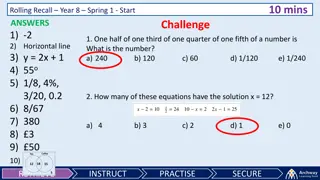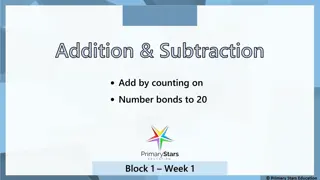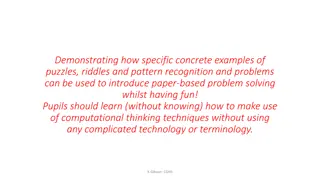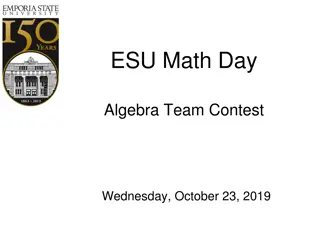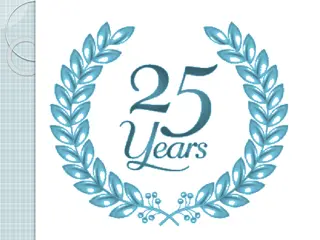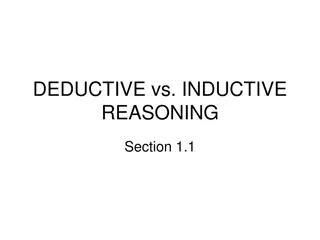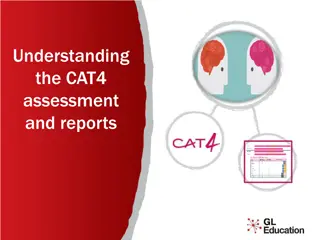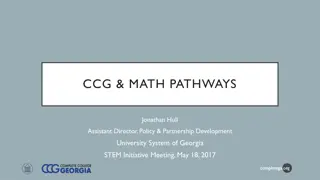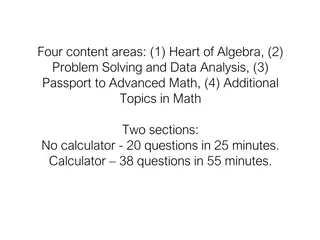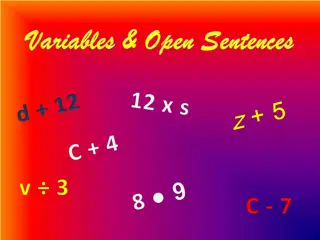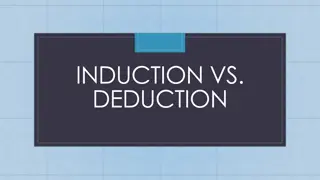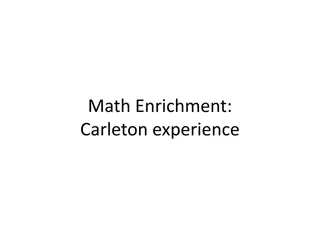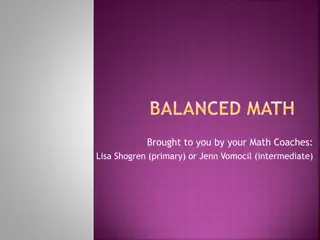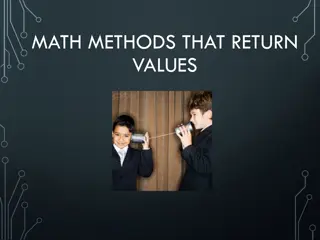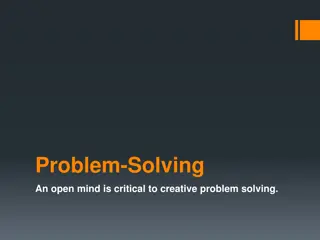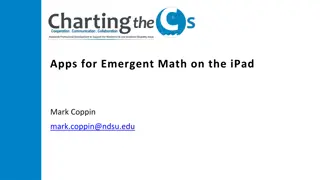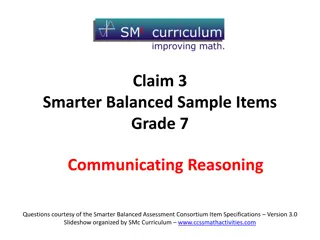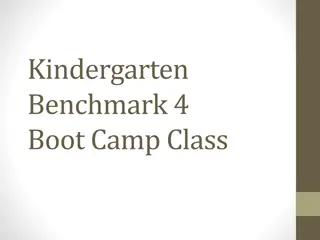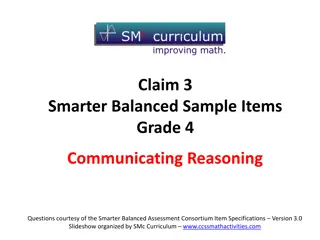Enhancing Math Skills for Year 6 Students Through Reasoning and Problem-Solving
Explore the shift towards math mastery, reasoning, and problem-solving strategies in Year 6 parent workshops. Learn why these methods differ from traditional approaches, emphasizing understanding over rote memorization. Discover the key skills needed for mathematical reasoning and how to support your child's development in fractions, decimals, and percentages.
Download Presentation

Please find below an Image/Link to download the presentation.
The content on the website is provided AS IS for your information and personal use only. It may not be sold, licensed, or shared on other websites without obtaining consent from the author. Download presentation by click this link. If you encounter any issues during the download, it is possible that the publisher has removed the file from their server.
E N D
Presentation Transcript
Year 6 Parent Workshop - Maths Reasoning and Problem solving strategies
Can you help me with my maths homework please? Why do they do it differently these days? It s the difference between providing someone with a list of instructions for getting from A to B and providing them with a map
Maths Mastery involves For example: If I know that 3 x 6 = 18, I know how to multiply 3 x 60 = 180 because I know that one of my factors is 10x bigger so my product has to be 10x bigger.
Why are we focusing on reasoning?
Where do the questions come from?
What sort of questions will my child be asked?
What skills do they need to be able to reason more mathematically? 1. Understanding the language eg: times means of 2. Identifying the maths involved eg: finding a fraction of an amount not multiplying fractions 3. Completing all the stages and steps involved
What skills do they need to be able to reason more mathematically? 1. Understand the language 2. Identify the maths 3. Complete all the stages of the problem
Focusing on fractions, decimals and percentages Part whole numerator denominator Equal out of 100 tenth hundredth More than less than difference between of Unit fractions Non-unit fractions improper Mixed number equivalent simplify Highest common denominator factor multilple Product decimal per cent times
It is also important to remember, your children are not going to be asked these exact questions again. Therefore they need to apply their understanding of the concepts behind fractions, decimals and percentages in order to unpick the maths in the questions they will be asked. Use what you know to work out what you don t know! chanel your inner Mr Hutson!
Things to try at home: Converting between fractions, decimals and percentages counting stick models https://mathsbot.com/manipulatives/countingStick Asking would you rather type questions eg: would you rather have of 30 or 2/3 of 24? Why? Asking what if type questions when you re out shopping eg: What if there was 25% off the cost of this new top you d like? Use playing cards to generate fractions which can be ordered, multiplied, added etc; practise converting into decimals and percentages
Things to try at home: Games Topmarks website https://www.topmarks.co.uk/maths-games/7-11-years/fractions-and- decimals Mathsframe website for a range of games https://mathsframe.co.uk/en/resources/category/18/fractions- decimals-and-percentages Nrich website for investigations https://nrich.maths.org/1249
And most importantly dont panic!


